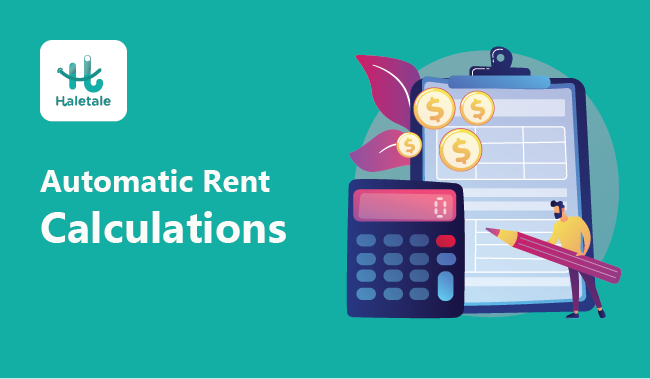Financial reporting in real estate is one of the primary drivers of property valuation. In part due to rising property prices, having a trusted third party go over your property can have some serious benefits. A clear financial reporting strategy can put your property’s value through the roof. This article seeks to explore the fascinating relationship between property valuation and financial reporting and explore the benefits of having your property looked over by a trusted name. Here are the full guide on financial reporting for properties.
The Role of Financial Reporting in Property Valuation
At the heart of financial reporting is an accurate representation of the health of a property. With this in mind, financial reporting enables a granular level of analysis of the overall financial performance of a property by looking at income, expenses and using those to create a picture of the short, mid and long term financial viability of a property. By not only tracking the property in question but other comparable properties, it allows landlords to position their assets in a competitive manner.
Financial reporting also serves as a risk management tool by identifying potential vulnerabilities in the property in question and allowing landlords and property managers to mitigate risk and safeguard property values by giving them the information they need to address these issues in a timely manner.
With this transparent and detailed financial reporting in place, investors and stakeholders alike can take confidence in the reporting and have a comprehensive overview of the property’s financial standing
With accurate financial reporting in place, tax planning can be done and ultimately, tax incentives can also be more accurately utilized, further impacting a property’s financial outlook.
Strategies for Maximizing Property Value through Financial Reporting
Interpreting Financial Data for Property Investments:
Financial reports may seem like a maze of acronyms and numbers, but there are a few crucial metrics that most directly indicate the financial health of a property. They include:
- Net Operating Income (NOI): This is a pure distillation of the true profit generation capability of a property. It is calculated by subtracting the operating expenses from the total income generated by the property. A high NOI will result in increased property value and demonstrate to potential investors that a property has a strong income potential.
- Cash Flow: This refers to the careful oversight and tracking of the inflow and outflow of cash associated with a property investment. By strategically managing these funds, it displays viability and room for growth that investors can see and decide to further their investment in said property, thus increasing its value.
- Return on Investment (ROI): A higher return on investment percentage demonstrates the profitability of a property relative to its cost. By analyzing ROI over time, it becomes easier to foresee growth in a sector of property and focus attention and investment funding.
Technology in Financial Reporting:
Modern software has numerous applications in financial reporting. By leveraging automation, the manual effort required for data entry, compilation and analysis is drastically reduced, leading to much more efficient and timely reporting. Integrations with property management systems allow for a more seamless flow of data, ensuring that financial data is shared and collected as efficiently as possible. Another way technology aids financial reporting is by enabling real time reporting. Access to up to date financial information gives property owners the knowledge necessary to make quick decisions that can positively affect property values.
Case Studies: Valuation Case Studies by Turner Drake:
Turner Drake presents examples where valuation and appraisal tasks can add value to properties through a consultative and transparent process. The focus is on avoiding litigation and the provision of well-documented valuation reports with unbiased conclusions helped to resolve cases amicably, while also increasing property value at sale.
FAQs
Q: How does financial reporting affect property value?
A: Financial reporting plays a crucial role in affecting property value by providing insights that can lead to a substantial increase in property value. By faithfully documenting a property’s financial health, including income, risks and expenses, stakeholders can gain an understanding of property values. The transparency in reporting not only instills confidence in investors but also enables tax planning and positively the financial outlook of the property.
Q: What are key financial reporting practices in real estate?
A: The best financial reporting practice in real estate involves accurate valuation surveys that assess a property’s worth and associated investment opportunities. Additionally, adherence to international valuation standards such as IAS 16 ensures consistency and reliability in financial reporting.
Q: Can financial transparency in property management lead to higher property values?
A: Financial transparency significantly influences property values significantly by providing clarity to all parties involved. It allows stakeholders to assess the true financial standing of a property. It also helps identify vulnerabilities and mitigate risks. It also enhances trust amongst investors and lenders which can lead to higher property values
Q: What tools and techniques are essential for effective financial reporting in real estate?
A: Effective financial reporting in real estate relies on various techniques and tools tailored to the unique needs of the property management industry. By making use of modern property management software, tasks like data entry, compilation and analysis are streamlined. Integration with other software also helps ensure the flow of data is not obstructed in any way. With this large amount of data at their fingertips, property owners and managers are empowered to make decisions that positively affect their property values.
Smarter Property Management
Find the best Rental Property Management Software in Canada. Transform your Rental property into a cash-generating asset with our user-friendly property management software solution.
Conclusion
In conclusion, the importance of expert financial reporting cannot be understated. Financial reporting in real estate is similar to managing a business where detailed reports are essential for understanding not only a property’s financial health but also its earning potential. These reports not only instill confidence in investors but also help facilitate effective tax planning, positively influencing a property’s financial outlook.
By implementing the financial reporting strategies outlined in this article, you can take your property management to the next level. You would be enhancing property value, mitigating risk, and making informed decisions by prioritizing accurate financial reporting. Feel free to share your experiences or ask any questions you may have in the comments below. Maximize your property’s potential today through effective financial reporting practices!












